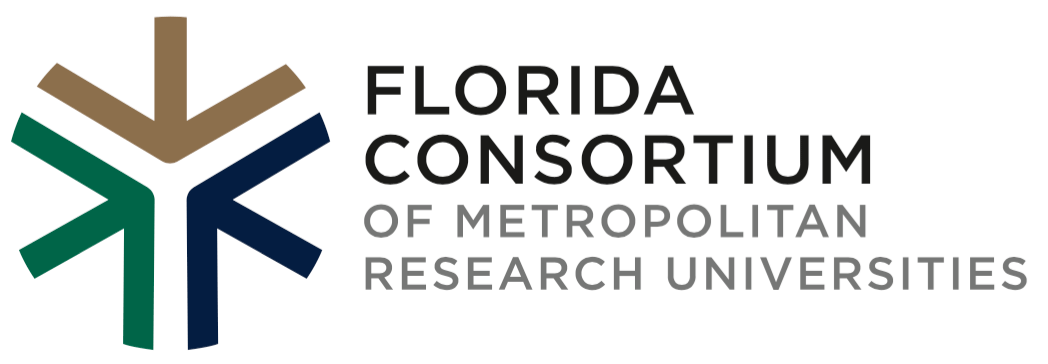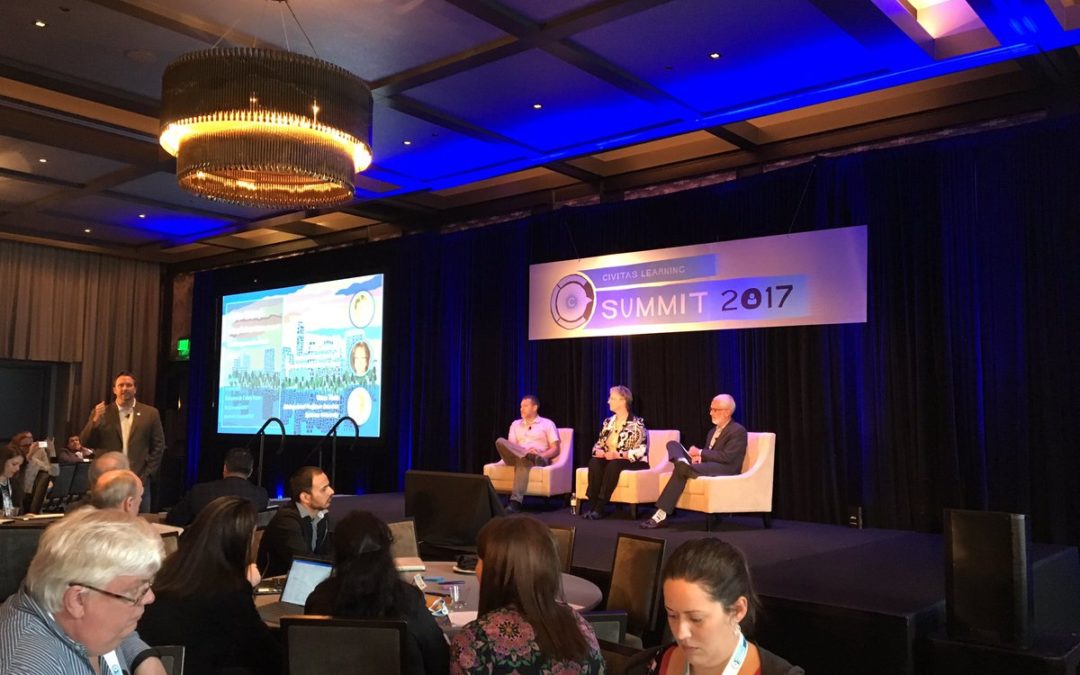Guest Post: Michael Preston, Ed.D., Executive Director, Florida Consortium of Metropolitan Research Universities
The late, great comedienne Joan Rivers used to begin her comedy routine with the line; “Can we talk?” It was always her brilliant way of taking a topic that is complex and boiling it down to its simple and understandable parts, usually with hilarious results. Last week, Civitas Learning held their annual Partner Summit and the theme could have been, “Can we talk?” From the opening keynote panel with Sally Johnstone, George Siemens, and Vincent Tinto to the closing talk by Civitas Founder and CEO Charles Thronburgh, summit attendees were treated to a series of spaces where they learned how data and information can be used to start conversations and guide student success.
There is a logical fallacy that data alone can drive the innovations that will lead to advancing student success at scale. While data can lead the way; data it is not a panacea for all that ails us. It is important to remember that behind every data point and every trend; students are affected by the decisions we make. Moreover, during a featured session Paul Dosal, Ed. D, USF, Vice President for Student Affairs and Student Success shared how his team uses data from over 48,000 students to inform USF’s “Can we talk?” moments. Using Civitas, USF’s Student Success team is driving decision-making with a case management approach to student advising. This high touch method is designed to allow data to inform which students’ USF faculty and staff need to pull aside and say, “Can we talk?” “Big Data and high-tech has helped us become more personal with students” said Dr. Dosal. This reminds us all that data without a connection to a student should not be our aim.
The highlight of the Partner Summit, featured four students from Austin Community College, Texas State University, Lone Star College, and the University of South Florida. They showcased the “Can we talk?” atmosphere of the sessions. Kendyl, a student graduating from USF in three weeks said, “Just ask us. When we are contacted and given agency over our own college experience, that’s when we can do some great things. We want to participate in our education.” The students emphasized the need for online tools like Schedule Planner and Degree Map to show them the way, to help them celebrate milestones, and to provide evidence of progress. Lluvia, a student from Austin Community College described how Degree Map helps her, “This keeps me on track and reminds me I can do this. I have four kids and I don’t have time to not make progress. Degree Map shows me there is a way and the little steps you’re taking, you can get there, it just takes time.”
In closing, by utilizing large data sets universities like USF are connecting with students where they are and nudging them in just the right way. Data with dialogue can be a powerful approach to creating a learning environment that supports all students. It can also lead us to moments when we simply ask students; “Can we talk?”

